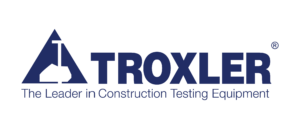This section provides a brief overview of the hazardous material (HAZMAT) regulatory requirements for transporting nuclear gauges. The Troxler Transportation Guide contains more detailed information, including sample shipping papers and other documentation.
The regulations governing the transportation of nuclear gauges are contained in Title 49 of the Code of Federal Regulations. Please refer to those regulations for complete details of transportation requirements. The following information summarizes some of the main requirements applicable to shippers of nuclear gauges.
Security
It is the responsibility of any person transporting a nuclear gauge to ensure that proper precautions are taken to prevent the theft of the gauge. Some commonsense suggestions and a security checklist can be found under Homeland Security on our website. To further enhance the security of gauges during transport Troxler also offers a special Mounted Transportation Box.
Certificate of Competent Authority
A copy of the IAEA Certificate of Competent Authority (sometimes referred to as “Special Form Certificate”) must be on file for at least one year after the latest shipment of a nuclear gauge. You can download a copy from our web site. Please note that these certificates have expiration dates.
NOTE: The sources in some older Troxler gauges are no longer certified as Special Form because of the manufacture date. These sources may be subject to shipping restrictions or may require that you modify your shipping practices. Please refer to the Special Gauge Shipping Instructions for further details.
Type A Package Testing Results
A copy of the results of Type A package testing for the shipping case must be on file for at least two years after the latest shipment. This information can be found in the Troxler Transportation Guide.
Hazmat Training
A certificate of training must be on file for each individual who transports or prepares a nuclear gauge for transport. Troxler’s Nuclear Gauge Safety Training course covers transportation requirements for nuclear gauges. Periodic Hazmat refresher training is required every 3 years.
Marking and Labeling
The package must be marked with the proper shipping name and labeled on opposite sides. Most Troxler transport cases require the Yellow II label which must denote the radionuclide, activity, and transport index. In addition, Type A packages must be labeled “US DOT 7A Type A”.
US DOT 7A Type A RQ label
US DOT 7A Type A label
Emergency Response Information
Emergency response information must accompany each shipment of a nuclear gauge. The document containing this information must be immediately accessible to the driver at all times during transportation on a public highway. A 24-hour emergency response telephone number must be listed on the shipping papers. Troxler provides this service to Troxler gauge users at no charge. The emergency response phone number is:
+1.919.549.9539
Shipping Papers
Whenever a nuclear gauge is shipped or transported it must be accompanied by properly completed shipping papers. Please consult the Troxler Transportation Guide for details. When transported via highway a properly completed bill of lading must be in the transport vehicle and immediately accessible to the driver.
Sealing of Package
Each Type A package must contain a seal that is not readily breakable and provides evidence that the package has not been opened in transit. This seal is required when transporting a gauge to and from a work site, as well as when shipping the gauge by a common carrier (e.g., FedEx).
Inspection Prior to Shipment
Before transporting a nuclear gauge, the shipper must inspect the package (shipping case) to ensure it is in good physical condition other than superficial marks and that all closure devices are in good working order and secured.

